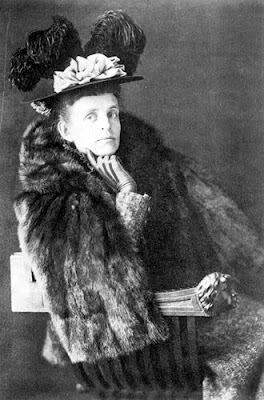
She listened as she lay, till she heard his step returning,
And his voice as he unclothed him: "'Twas nothing, as I said,
But the nor'-west wind a-blowing from the moor ath'art the river,
And the tree that taps the gurgoyle-head."
"Nay, husband, you perplex me; for if the noise I heard here,
Awaking me from sleep so, were but as you avow,
The rain-fall, and the wind, and the tree-bough, and the river,
Why is it silent now?
"And why is thy hand and thy clasping arm so shaking,
And thy sleeve and tags of hair so muddy and so wet,
And why feel I thy heart a-thumping every time thou kissest me,
And thy breath as if hard to get?"
He lay there in silence for a while, still quickly breathing,
Then started up and walked about the room resentfully:
"O woman, witch, whom I, in sooth, against my will have wedded,
Why castedst thou thy spells on me?
"There was one I loved once: the cry you heard was her cry:
She came to me to-night, and her plight was passing sore,
As no woman . . . Yea, and it was e'en the cry you heard, wife,
But she will cry no more!
"And now I can't abide thee: this place, it hath a curse on't,
This farmstead once a castle: I'll get me straight away!"
He dressed this time in darkness, unspeaking, as she listened,
And went ere the dawn turned day.
They found a woman's body at a spot called Rocky Shallow,
Where the Froom stream curves amid the moorland, washed aground,
And they searched about for him, the yeoman, who had darkly known
her,
But he could not be found.
And the bride left for good-and-all the farmstead once a castle,
And in a county far away lives, mourns, and sleeps alone,
And thinks in windy weather that she hears a woman crying,
And sometimes an infant's moan.
 I
I














































